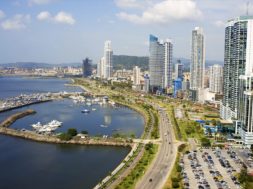New Delhi – There are gentle winds of change in Kashmir amidst this year’s tourist boom to the satisfaction of peace-loving common men in the valley. Tourism, in fact, holds the key to the prosperity and happiness of average Kashmiris. In a given time and in a given situation, it shapes their attitudes and responses to political leaders as well as to separatists who have turned their trouble-making strategy into a fine art of money-oriented political business. Of all the persons, even Yasin Malik, has reportedly confessed that €Kashmir politics is no longer about ideology. It’s all a money game€.
I have known about this money business right from the time I first visited Srinagar during the highly explosive days of the ISI-sponsored militancy in the nineties. I had a first-hand glimpse of prosperity levels of some of the separatist leaders in contrast to the agony and sufferings of ordinary Kashmiris who have had no choice but to join the sponsored anti-India chorus. What then saddened me was New Delhi’s failure to properly grasp the ground realities and evolve an integrated strategy for intelligent political-cum-security-cum humane management of men, matters and issues.
No single one-track policy can work in Kashmir. It requires a wider multi-dimensional understanding of historical landmarks, rich tradition of Sufism, psychological aura of Kashmiriat, Kashmiri Muslims, invisible silken bonds with the Kashmiri pundits, PoK’s under-currents, Pak military-cum-political factors, sponsored Taliban creed of fundamentalism, American, Western and West Asian interests and the Islamabad-Beijing axis aimed at checkmating New Delhi’s moves on the Asian chessboard, especially vis- -vis neighbouring countries.
What has been particularly regrettable is that the policy-makers in the South Block have neither learnt from history nor from past mistakes and blunders. The policies towards Pakistan generally move on a one-point slot with the result they hop from one position to another.
This is the problem with the present Prime Minister, Dr Manmohan Singh. This exactly was the problem with most PMs earlier, though I would look at Atal Behari Vajpayee somewhat differently. He had better understanding of Pakistan and Kashmir affairs. No wonder, many knowledgeable persons in Pakistan believe that the Kashmir issue could have been solved during his Prime-Ministership. Perhaps, he would have given result had he got a second stint in the 2004 elections.
Be that as it may, we don’t have to go by cables of whistle-blower website Wikileaks to know about the vested interests of €stakeholders€ in keeping the Kashmir pot boiling. Nor have we to go by February 2006 diplomatic cables of David Mulford who was American Ambassador to India.





